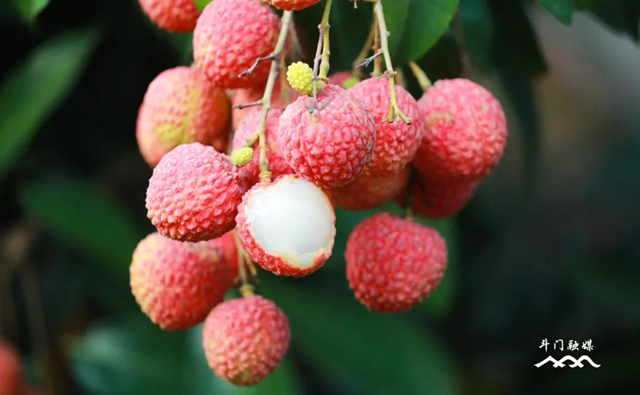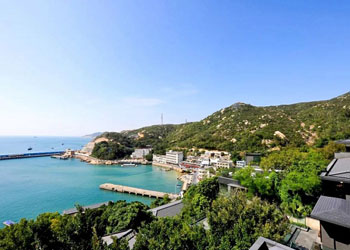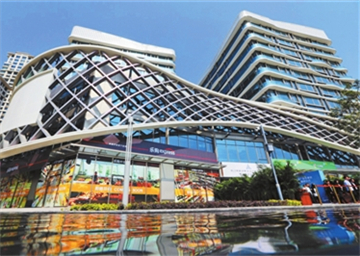Origin trademark affords protection for Doumen Lychee
Doumen Lychee is the first fruit or vegetable in Zhuhai to be registered as a National Geographical Indication Trademark by the China National Intellectual Property Administration.
The trademark certificate granted June 28 is an endorsement of the lychee's place of origin and quality. Enterprises may use the geographical indication trademark "Dou Men Li Zhi (Doumen Lychee)" or label only with approval of the Doumen Agricultural Technology Promotion General Station.

Doumen Lychee [Photo courtesy WeChat account: meilidoumen]
Next, Doumen will refine the management methods and standards for use of the trademark, which will be promoted among eligible enterprises and used to establish Doumen Lychee as a new industry, said Huang Yongzi, senior agronomist of the station.
Doumen has a long-rooted tradition of planting several lychee trees near a residence that has just had a newborn. When the lychee trees begin to bear fruits is also when children begin school. That is why ancient lychee trees can be seen everywhere in Doumen.
Zhuhai is now home to 41,300 mu (2,753 hectares, 7,099 acres) of lychee plantations, of which 21,000 mu (1,400 hectares, 3,459 acres) are in Doumen. The district has cultivated Concubine's Smile (Feizixiao) and Imperial Golden Ball (Yujinqiu). A complete industrial chain of cooperatives, enterprises, bases, and farmers has taken shape.
This year, a bumper harvest of 4,300 tons of lychees is predicted in Doumen, which will amount to 74 percent of the city's total, according to Zhou Donghui, a technical staffer at the Zhuhai Modern Agriculture Development Center.
Golden Bay (Jinwan) Yellowfin Seabream on June 4 became the first agricultural product in Jinwan District to obtain national protection as a Geographical Indicator, joining only Doumen District's Baijiao Sea Bass, which became a National Protected Geographical Indication product in 2017.
Related
Lychee farmers have bumper to smile about in Doumen
A bumper harvest of 4,300 tons of lychees is predicted this year on 21,000 mu (1,400 hectares, 3,459 acres) of plantations in Doumen District, the local Agriculture & Rural Affairs Bureau announced June 1.



